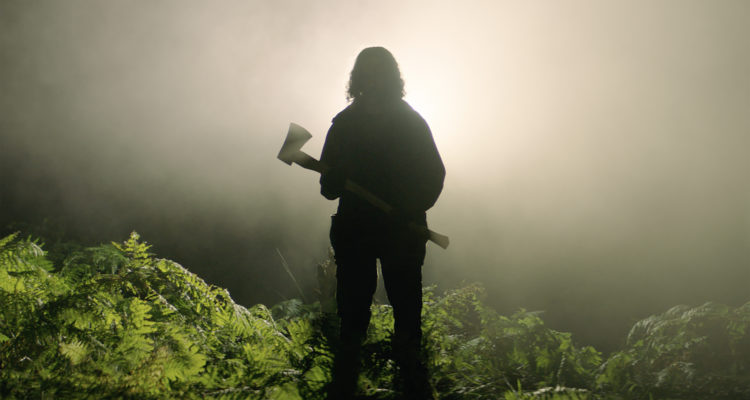What does one even make of Ben Wheatley, at this point? That the same director is responsible for films as wildly divergent as “Sightseers,” “A Field in England,” “Free Fire,” “Happy New Year, Colin Burstead,” and last year’s “Rebecca” remake should be impressive – the variations present, in genre and tone, indicated a good old-fashioned journeyman director, and three cheers for that. The problem is that the work vacillates just as wildly in quality, from pictures masterfully executed to ill-advised to barely watchable.
READ MORE: 25 Most Anticipated 2021 Sundance Film Festival Premieres
His latest, “In the Earth,” lands somewhere in the middle. It’s a variation on that old horror standby, the “don’t go into the woods” movie, but up to the minute; Ben Wheatley wrote, shot, and completed the picture in the last year, conceiving it about two weeks into lockdown, and setting it during just such a global pandemic. In its opening scenes, Dr. Martin Lowery (Joel Fry) arrives at a holiday lodge that is currently shut down due to “the crisis”; he’s greeted by men in masks, as the lodge is keeping itself financially afloat via funds from researchers like him. Lowery’s field of study is how to make crops more efficient, and the adjoining forest is filled with rich soil.
READ MORE: The 100 Most Anticipated Films Of 2021
But the research hub is deep in the forest, a two-day walk, so he’s paired with park scout Alma (Ellora Torchia) for the trip. “People get a bit funny in the woods sometimes,” he’s warned before the journey, a textbook bit of foreshadowing. “It is a hostile environment.” And that’s under the best of circumstances; Martin has been in isolation for four months, and seems … not quite right, in a way that’s difficult to pinpoint. “It’s just difficult, being outside for the first time in months,” he tells Alma. “It’s hard to take it all in.”
Early in the journey, they find a mysteriously abandoned tent; later that night, they’re awakened violently and beaten savagely, by persons unknown. Their equipment is destroyed, and their shoes are stolen. They’re in a bad spot when Zac (Reece Shearsmith), a man living in the woods and off the grid, offers them help. They accept it, perhaps a bit too eagerly.
These early scenes are awfully slow going. They have a muted, stripped-down quality that’s admirable, in its way, but that gets tiresome quickly; you keep waiting for the movie to start. It certainly does once Zac shows up, but Wheatley then has to dig his way out of the dullness, since the characters are such ciphers that we’re not terribly invested in what’s happening to them. It takes a fair dose of torture horror to give the picture the pulse it needs – that and the stellar work by Shearsmith, who has an alternately funny and chilling air of affability, even when he’s saying the most disturbing and/or nutso things.
Haley Squires is also quite good as a fellow doctor, putting across her character’s enigmatic qualities without overplaying them; it’s the kind of character (and performance) that tells you nothing, without seeming to hide anything. But a little of that goes a long way here, particularly when Wheatley starts bending the picture into trippy surrealism in the back half, often at the expense of its own momentum. For example, he builds a terrific suspense sequence out of an escape attempt, with flying arrows and swinging axes, cut and scored within an inch of its life – but then it collapses into overwrought stylistic pyrotechnics, indicative less of a bold storytelling strategy than that the director apparently got ahold of a “Mandy” Blu-ray. Later scenes of environmental ingestion and infestation recall similar, better material from “Annihilation”; at times, he seems even to be calling back to his own “A Field in England.” It’s not that these flourishes aren’t effective – some moments are intensely visceral, if a touch overwhelming. But they never feel organic to the material. And as with “Free Fire” and “High Rise,” he’s quite good at creating onscreen chaos, but unskilled (or uninterested) in retaining control of his narratives after doing so.
“In the Earth” isn’t a complete washout; there are moments of bleak humor, genre fans will enjoy the striking imagery and gross-out shivers, and the director has an undeniable gift for setting and maintaining a mood (he gets a big assist on the latter from Clint Mansell’s synth score). But ultimately, it’s kind of a slog. Late in the film, its heroes are told, “Zac is trying to make meaning where there isn’t any.” You could say the same about Ben Wheatley. [C]
Follow along with all of our coverage of this year’s Sundance Film Festival here.

